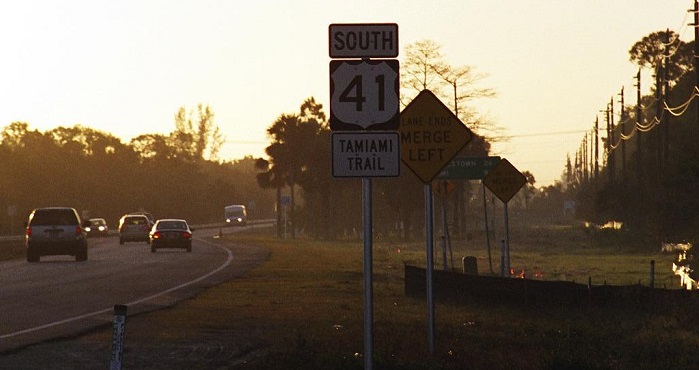With a single headline, I just relegated myself to the political fringe.
Federal highway funding is unconstitutional.
Most people immediately dismissed this statement as out of hand.
Extreme.
Kookie.
This illustrates just how far Americans have strayed from our constitutional roots.
Notice what I did not say. I didn’t suggest the federal government shouldn’t fund or build highways. That remains open for debate. But I stand firm on my assertion that it lacks the constitutional authority to do so.
The Constitution delegated limited power and authority to the federal government. All powers not delegated remain with the state governments and the people themselves. Since the Constitution does not list funding a transportation system among its enumerated powers (other than building post roads for moving U.S. mail), it lacks the authority to do so.
While most Americans likely blow me off as some kind of anti-government wack-job, they would do well to consider that James Madison held exactly the same position.
If I really am an extremist, I count the man most consider the “Father of the Constitution” good company.
On March 3, 1817, Madison vetoed a public works bill “for constructing roads and canals, and improving the navigation of water courses, in order to facilitate, promote, and give security to internal commerce among the several States.”
In his veto message, Madison made the same assertion as I – the Constitution does not delegate power for such “internal improvements.”
The legislative powers vested in Congress are specified and enumerated in the eighth section of the first article of the Constitution, and it does not appear that the power proposed to be exercised by the bill is among the enumerated powers, or that it falls by any just interpretation with the power to make laws necessary and proper for carrying into execution those or other powers vested by the Constitution in the Government of the United States.
What about the commerce clause, some might ask? Madison addressed this as well.
“The power to regulate commerce among the several States” cannot include a power to construct roads and canals, and to improve the navigation of water courses in order to facilitate, promote, and secure such commerce without a latitude of construction departing from the ordinary import of the terms strengthened by the known inconveniences which doubtless led to the grant of this remedial power to Congress.
How about general welfare?
Nope. Not according to Madison.
To refer the power in question to the clause “to provide for common defense and general welfare” would be contrary to the established and consistent rules of interpretation, as rendering the special and careful enumeration of powers which follow the clause nugatory and improper. Such a view of the Constitution would have the effect of giving to Congress a general power of legislation instead of the defined and limited one hitherto understood to belong to them, the terms “common defense and general welfare” embracing every object and act within the purview of a legislative trust.
The original understanding of the constitution simply did not allow the federal government to exercise such power.
But many will protest, what about the roads? Are you actually suggesting we should scrap the interstate highway system?
No. But I do suggest that the rule-of-law demands that the federal government simply can’t do things just because the activities might prove beneficial.
Fortunately, the Constitution provides a way to expand federal power when the people find it necessary for the common good – the amendment process.
Madison actually favored federal funding for roads and canals. But he vetoed the bill anyway because of constitutional concerns. Madison suggested in his veto message that the proper way forward involved amending the Constitution to delegate the federal government the necessary power to take on this particular role.
I am not unaware of the great importance of roads and canals and the improved navigation of water courses, and that a power in the National Legislature to provide for them might be exercised with singal advantage to the general prosperity. But seeing that such a power is not expressly given by the Constitution, and believing that it can not be deduced from any part of it without an inadmissible latitude of construction and reliance on insufficient precedents; believing also that the permanent success of the Constitution depends on a definite partition of powers between the General and the State Governments, and that no adequate landmarks would be left by the constructive extension of the powers of Congress as proposed in the bill, I have no option but to withhold my signature from it, and to cherishing the hope that its beneficial objects may be attained by a resort for the necessary powers to the same wisdom and virtue in the nation which established the Constitution in its actual form and providently marked out in the instrument itself a safe and practicable mode of improving it as experience might suggest.
Madison refused to put his personal policy preferences above the limits on the federal government imposed by the Constitution today.
Americans would do well to follow his example.




